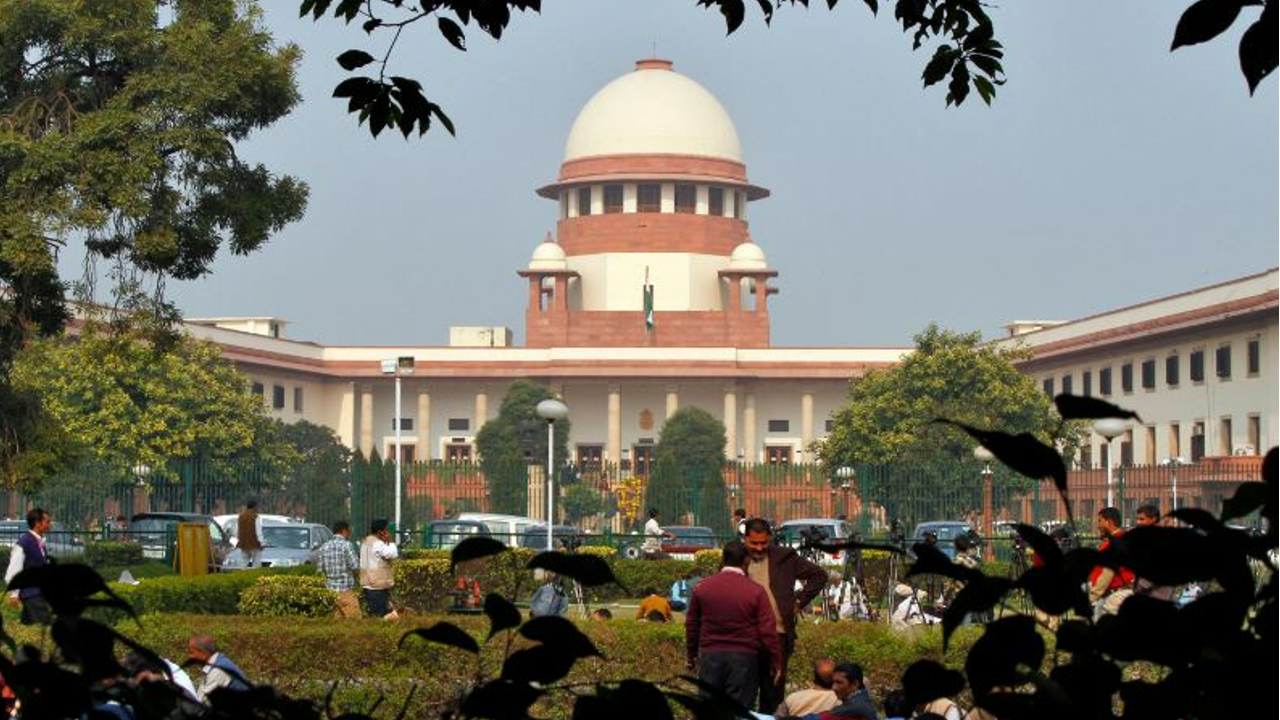NEW DELHI: Chief Justice D Y Chandrachud on Wednesday said the Supreme Court henceforth will have a permanent Constitution bench of different strengths to take up matters referred to five-, seven- and nine-judge benches, the latter having to deal with 135 cases, including one related to entry of women (of all age groups) into Sabarimala temple, mosques and agiyaris. Of the 80,000-odd cases pending adjudication, 306 cases are pending decisions of five-judge benches.
While dealing with three important constitutional issues – validity of Section 6A of Citizenship Act introduced after the Assam Accord of 1985, validity of constitutional amendments to Section 334 to perpetuate reservation of seats for SCs and STs in Lok Sabha and assemblies, and the correctness of the 1998 ruling giving immunity from prosecution to MPs and MLAs in vote-for-bribe scams, the CJI said “Constitution benches of different strengths would be a permanent feature henceforth. I will space out the hearing and even constitute a nine-judge bench to deal with pending matters.”
This will meet the object and intent of the framers of the Constitution, which gave exclusive jurisdictions to SC to deal with inter-state and Centre-state disputes, made law declared by SC the law of the land, and conferred with it omnibus powers under Article 142 to do complete justice apart from making it the final court of justice while hearing appeals against decisions of HCs.
The SC through the years has expanded the ambit of fundamental rights beyond the text of the Constitution (mainly right to life), interpreted constitutional provisions much beyond the literary meanings of the constitutional provisions (selection of constitutional court judges through the collegium system) and even indulged in quasi-legislative exercises through the Vishaka judgment to prevent sexual harassment at the workplace.
While dealing with three important constitutional issues – validity of Section 6A of Citizenship Act introduced after the Assam Accord of 1985, validity of constitutional amendments to Section 334 to perpetuate reservation of seats for SCs and STs in Lok Sabha and assemblies, and the correctness of the 1998 ruling giving immunity from prosecution to MPs and MLAs in vote-for-bribe scams, the CJI said “Constitution benches of different strengths would be a permanent feature henceforth. I will space out the hearing and even constitute a nine-judge bench to deal with pending matters.”
This will meet the object and intent of the framers of the Constitution, which gave exclusive jurisdictions to SC to deal with inter-state and Centre-state disputes, made law declared by SC the law of the land, and conferred with it omnibus powers under Article 142 to do complete justice apart from making it the final court of justice while hearing appeals against decisions of HCs.
The SC through the years has expanded the ambit of fundamental rights beyond the text of the Constitution (mainly right to life), interpreted constitutional provisions much beyond the literary meanings of the constitutional provisions (selection of constitutional court judges through the collegium system) and even indulged in quasi-legislative exercises through the Vishaka judgment to prevent sexual harassment at the workplace.
